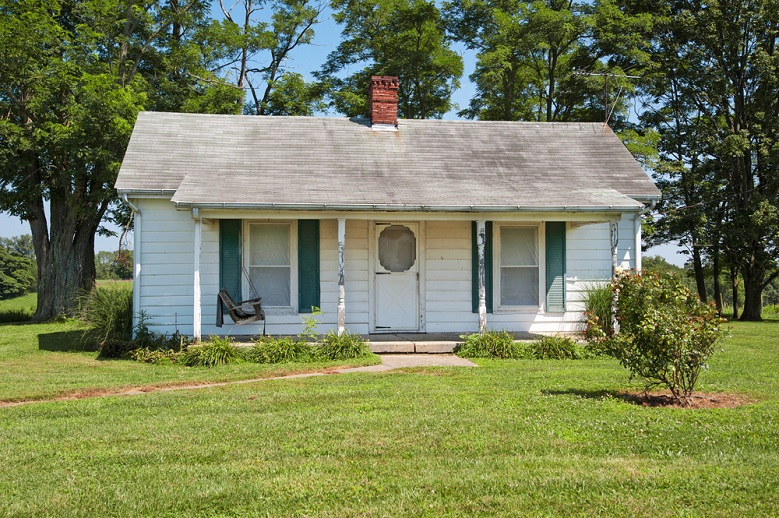
By Ethan Roberts
Over the past few decades, many people have discovered that there is money to be made in buying “fixer upper” real estate and then remodeling it to live there inexpensively, rent it out, or sell it quickly for a profit.
But the average person doesn’t realize that buying a fixer upper is no simple matter. Over the years, I have had many customers tell me they wanted a fixer upper, only to have a complete reversal of thinking after we actually looked at a couple of badly neglected, dilapidated homes. They thought a little new carpet and paint was all that would be necessary. Then they saw real fixer uppers with out of date kitchens, bathrooms, and flooring, or broken doors and windows, leaky roofs, inoperable heating units, and plumbing slab leaks.
Shortly thereafter, many of these customers decided a newer home in better condition was the way to go, even if it meant going up in price.
So before you decide to buy a fixer upper, it is vital to ask yourself five key questions that will determine whether or not this type of home is really right for you. These questions are:
1. Do I have the time to fix up a home?
If you have only minimal real estate experience, you may not realize how many hours rehabbing a home may take. Even if you hire someone else to do all of the remodeling, you will still spend countless hours choosing materials, supervising the work, and keeping a detailed accounting of your expenses.
I have an investor friend who has a full time job that often has him working more than 40 hours a week. He also likes to flip foreclosures, and hires a crew to completely remodel each home. Although he himself does very little work on the homes, he’s at Home Depot or Lowes late at night buying ceiling fans, light fixtures, door knobs, or paint. An hour later he is delivering the materials to the property, so the workers have everything they need the next morning. He finally staggers home around 11 PM. Could you handle that?
2. Do I have the knowledge for fixing up a home?
Twenty years ago when I first bought homes to rent, I can honestly say I barely knew a hammer from a screwdriver. I had to totally rely on my handyman to do almost everything, and the remodeling that we did was somewhat limited to painting, adding new carpet and linoleum, and making a few minor repairs.
Over the years I have learned so much about remodeling homes, that now I work right alongside my handyman on a number of projects. Today there are hundreds of “how to” videos on Youtube that can teach you how to fix almost any problem in a home. The learning process wasn’t always easy or fun, but it saved me thousands of dollars over the years and gave me a sense of pride that is priceless!
3. Do I have the money to fix up a home?
Despite the government’s assertions that there is little inflation in the economy, I have found that the price of materials for home repairs has increased substantially over the past 10 years. It’s not so much the large items that are going up, as the smaller parts that are necessary to making the improvements. When you are paying $8 to $10 apiece for sink and toilet valves or water lines, and you have to replace three sinks and two toilets in a home that really adds up! Be prepared to spend $20,000 or more on a typical three bedroom, 2 bathroom home that has been badly neglected.
4. Do I have a network of service providers to help me?
The average person may know a plumber or handyman they can use every so often for home repairs. But when investors are remodeling homes, they need to have an entire network of service people they can call for a variety of problems.
Although a good handyman can paint, pressure wash, and fix a number of minor problems throughout the home, an investor should have a go-to list that includes a licensed electrician, plumber, roofer, heating or air conditioning company, landscaper, pest control company, and flooring specialist. It’s also extremely helpful to have access to a professional home inspector and a CPA.
If you are working with a Realtor, they are an excellent source to provide you with the names of good service providers. Otherwise, you may want to ask friends or associates from local real estate clubs for recommendations.
5. Will there be sweat equity in the home after it is fixed up?
According to Rick Sharga, Executive Vice President of real estate website, Ten-x.com, this is the most important of the five questions, since it makes no sense to fix up a house unless the end result will be profitable for you.
Why spend $200,000 on a home plus an additional $50,000 in improvements if the home is only worth $255,000 when finished? It would be far easier and less expensive or time consuming to simply buy a turn-key home for $255,000!
The whole idea of buying a home that needs repairs, or “TLC” as it is called in real estate circles, is to garner a large profit in “sweat equity” after it’s completed. Sweat equity is the difference between the value of the improved home, minus the total of the sales price plus repair and improvement costs. So in the above example, the sweat equity would be only $5000, or about 2% of the value, so it’s not cost effective to take on that project.
In my experience, you want a number closer to 20% of the value of the home in sweat equity to make a project really worthwhile. So in the above example, if the home was worth $255,000 after all improvements were made, one would need to PAY AND IMPROVE that home for a total of $200,000 to benefit. In that instance, our sweat equity would be about $55,000 upon completion.
In order to buy a fixer upper, you should probably be able to answer “Yes” to at least three of the five previous questions, and the sweat equity answer must be one of the three you answer affirmatively If you can honestly answer “Yes” to most of these, you are well on your way to another big “Yes”- which is the answer you will be giving your friends when they ask if you made a nice profit on the fixer upper you purchased!


